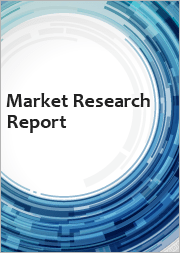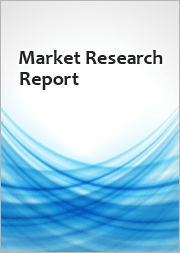
|
시장보고서
상품코드
1618228
바이오프로세스 분석기 시장 기회, 성장 촉진요인, 산업 동향 분석 및 예측(2024-2032년)Bioprocess Analyzers Market Opportunity, Growth Drivers, Industry Trend Analysis, and Forecast 2024 - 2032 |
||||||
바이오프로세스 분석기 세계 시장은 2023년 20억 달러로 평가되었고, 2024-2032년간 연평균 11.5%의 성장률을 나타낼 것으로 예상됩니다. 바이오프로세스 분석기는 바이오 의약품, 바이오연료 및 기타 생명공학 관련 제품 등의 생산에 생체 세포 및 그 성분을 사용하는 바이오프로세스을 모니터링하고 최적화하는 데 사용되는 중요한 도구입니다. 이러한 분석기는 특히 바이오 의약품 생산에서 생명공학 공정의 품질, 효율성 및 제어를 개선하는 데 도움이 됩니다. 생명공학 기술의 지속적인 발전은 더욱 정교하고 자동화된 바이오프로세스 분석기기의 개발로 이어져 시장 성장을 더욱 촉진하고 있습니다. 또한, 바이오시밀러는 생물학적 제제에 비해 비용 효율성이 높기 때문에 바이오시밀러에 대한 수요가 증가하고 있는 것도 시장 성장의 주요 요인으로 작용하고 있습니다.
정부 지원과 자금 지원도 이 부문의 기술 혁신을 촉진하고 있으며, 이는 바이오 제약 산업에서 이러한 기기의 중요성이 증가하고 있음을 뒷받침하고 있습니다. 분석 유형별로는 농도 검출이 주요 부문으로 부상하여 2023년 11억 달러의 매출을 기록할 것으로 예상되며, 연평균 11.6%의 지속적인 성장이 예상됩니다. 단클론 항체 및 백신을 포함한 생물학적 제제의 생산은 단백질, 대사산물, 세포 밀도와 같은 중요한 매개변수의 정확한 측정에 의존하고 있습니다. 따라서 일관된 제품 품질과 규제 준수를 보장할 수 있는 분석 장비에 대한 수요가 증가하고 있습니다.
용도별로 시장은 항생제, 재조합 단백질, 바이오시밀러, 기타 바이오 제품으로 나뉩니다. 항생제 부문은 2023년 30.8%의 큰 시장 점유율을 차지할 것으로 예상되며, 예측 기간 동안 10.2%의 연평균 복합 성장률(CAGR)로 성장할 것으로 예상됩니다. 항생제 생산에는 정밀한 환경 제어가 필요한 복잡한 미생물 발효 공정이 포함됩니다. 첨단 센서가 장착된 바이오프로세스 분석기는 산소 수준, 영양 공급, 온도 등 최적의 발효 조건을 모니터링하고 유지하여 궁극적으로 생산 효율을 높이는 데 도움이 됩니다.
| 시장 범위 | |
|---|---|
| 시작 연도 | 2023년 |
| 예측 연도 | 2024-2032년 |
| 시작 가격 | 20억 달러 |
| 예측치 | 54억 달러 |
| CAGR | 11.5% |
지역별 성장률에서 북미 바이오프로세스 분석기 시장은 2032년까지 20억 달러에 달할 것으로 예상되며, 2023년 미국이 7억 1,270만 달러의 매출 점유율로 시장을 주도할 것으로 예상됩니다. 암, 당뇨병, 자가면역질환과 같은 만성질환 증가로 인해 생물학적 제제 및 맞춤형 의약품에 대한 수요가 증가하고 있습니다. 이에 따라 이러한 첨단 치료제 개발에서 생산 공정을 개선하고 규제 준수를 유지하기 위한 바이오프로세스 분석 장비에 대한 수요가 증가하고 있습니다.
목차
제1장 조사 방법과 조사 범위
제2장 주요 요약
제3장 산업 인사이트
- 생태계 분석
- 산업에 대한 영향요인
- 성장 촉진요인
- 바이오의약품에 대한 수요 증가
- 바이오테크놀러지와 바이오프로세스 진보
- 바이오시밀러 수요 증가
- 정부 이니셔티브와 자금 제공 증가
- 산업의 잠재적 리스크와 과제
- 기기 고비용
- 복잡성과 전문 기술
- 성장 촉진요인
- 성장 잠재성 분석
- 규제 상황
- 미국
- 유럽
- 아시아태평양
- 기술적 전망
- Porter's Five Forces 분석
- PESTEL 분석
제4장 경쟁 구도
- 서론
- 기업 점유율 분석
- 주요 시장 진출기업 경쟁 분석
- 경쟁 포지셔닝 매트릭스
- 전략 대시보드
- 전략 전망 매트릭스
제5장 시장 추정·예측 : 제품별, 2021-2032년
- 주요 동향
- 기구
- 소모품·부속품
제6장 시장 추정·예측 : 분석 유형별, 2021-2032년
- 주요 동향
- 기질 분석
- 대사물 분석
- 농도 감지
제7장 분석 유형별 시장 추정·예측 : 용도별, 2021-2032년
- 주요 동향
- 항생제
- 재조합 단백질
- 바이오시밀러
- 기타
제8장 시장 추정·예측 : 최종 용도별, 2021-2032년
- 주요 동향
- 바이오의약품 기업
- CRO와 CMO
- 연구 및 학술기관
- 기타
제9장 시장 추정·예측 : 지역별, 2021-2032년
- 주요 동향
- 북미
- 미국
- 캐나다
- 유럽
- 독일
- 영국
- 프랑스
- 스페인
- 이탈리아
- 기타 유럽
- 아시아태평양
- 중국
- 일본
- 인도
- 호주
- 한국
- 기타 아시아태평양
- 라틴아메리카
- 브라질
- 멕시코
- 아르헨티나
- 기타 라틴아메리카
- 중동 및 아프리카
- 남아프리카공화국
- 사우디아라비아
- 아랍에미리트(UAE)
- 기타 중동 및 아프리카
제10장 기업 개요
- 4BioCell GmbH & Co. KG
- Agilent Technologies, Inc.
- Danaher Corporation
- Endress+Hauser Group Services AG
- Eppendorf AG
- F. Hoffmann-La Roche Ltd.
- Nova Biomedical
- Randox Laboratories Ltd.
- Sartorius AG
- Solida BIoTech GmBH
- SYSBIOTECH GmbH
- Thermo Fisher Scientific Inc.
- Xylem Inc.
The Global Bioprocess Analyzers Market was valued at USD 2 billion in 2023 and is projected to grow at a CAGR of 11.5% from 2024 to 2032. Bioprocess analyzers are essential tools used to monitor and optimize bioprocesses, which involve the use of living cells or their components to produce products such as biopharmaceuticals, biofuels, and other biotechnology-driven goods. These analyzers help improve the quality, efficiency, and control of biotechnological processes, especially in biologics production. The ongoing advancements in biotechnology have led to the development of more sophisticated and automated bioprocess analyzers, further fueling market growth. Additionally, the growing demand for biosimilars, owing to their cost-efficiency compared to biologics, is a significant market growth driver.
Government support and funding also foster innovation in this sector, underscoring the increasing importance of these instruments in the biopharmaceutical industry. Based on analysis type, concentration detection emerged as the leading segment, generating USD 1.1 billion in revenue in 2023, with expectations for continued growth at a CAGR of 11.6%. Biologics production, including monoclonal antibodies and vaccines, relies on accurate measurements of critical parameters such as proteins, metabolites, and cell densities. This drives the demand for analyzers that can ensure consistent product quality and regulatory compliance.
By application, the market is divided into antibiotics, recombinant proteins, biosimilars, and other bioproducts. The antibiotics segment accounted for a significant 30.8% market share in 2023 and is anticipated to grow at a 10.2% CAGR over the forecast period. Antibiotic production involves intricate microbial fermentation processes that require precise environmental control. Bioprocess analyzers, equipped with advanced sensors, help monitor and maintain optimal fermentation conditions, such as oxygen levels, nutrient feed, and temperature, ultimately enhancing production efficiency.
| Market Scope | |
|---|---|
| Start Year | 2023 |
| Forecast Year | 2024-2032 |
| Start Value | $2 Billion |
| Forecast Value | $5.4 Billion |
| CAGR | 11.5% |
In terms of regional growth, the North American bioprocess analyzers market is expected to reach USD 2 billion by 2032. The U.S. led the regional market in 2023, with a revenue share of USD 712.7 million. The increasing prevalence of chronic diseases such as cancer, diabetes, and autoimmune disorders is driving the demand for biologics and personalized medicines. This, in turn, is boosting the need for bioprocess analyzers to improve production processes and maintain regulatory compliance in the development of these advanced therapies.
Table of Contents
Chapter 1 Methodology & Scope
- 1.1 Market scope & definition
- 1.2 Research design
- 1.2.1 Research approach
- 1.2.2 Data collection methods
- 1.3 Base estimates & calculations
- 1.3.1 Base year calculation
- 1.3.2 Key trends for market estimation
- 1.4 Forecast model
- 1.5 Primary research and validation
- 1.5.1 Primary sources
- 1.5.2 Data mining sources
Chapter 2 Executive Summary
- 2.1 Industry 360° synopsis
Chapter 3 Industry Insights
- 3.1 Industry ecosystem analysis
- 3.2 Industry impact forces
- 3.2.1 Growth drivers
- 3.2.1.1 Growing demand for biopharmaceutical products
- 3.2.1.2 Advancements in biotechnology and bioprocessing
- 3.2.1.3 Increasing demand for biosimilars
- 3.2.1.4 Rising government initiatives and funding
- 3.2.2 Industry pitfalls & challenges
- 3.2.2.1 High cost of instruments
- 3.2.2.2 Complexity and technical expertise
- 3.2.1 Growth drivers
- 3.3 Growth potential analysis
- 3.4 Regulatory landscape
- 3.4.1 U.S.
- 3.4.2 Europe
- 3.4.3 Asia Pacific
- 3.5 Technological landscape
- 3.6 Porter's analysis
- 3.7 PESTEL analysis
Chapter 4 Competitive Landscape, 2023
- 4.1 Introduction
- 4.2 Company market share analysis
- 4.3 Competitive analysis of major market players
- 4.4 Competitive positioning matrix
- 4.5 Strategy dashboard
- 4.6 Strategy outlook matrix
Chapter 5 Market Estimates and Forecast, By Product, 2021 - 2032 ($ Mn)
- 5.1 Key trends
- 5.2 Instruments
- 5.3 Consumables & accessories
Chapter 6 Market Estimates and Forecast, By Analysis Type, 2021 - 2032 ($ Mn)
- 6.1 Key trends
- 6.2 Substrate analysis
- 6.3 Metabolite analysis
- 6.4 Concentration detection
Chapter 7 Market Estimates and Forecast, By Application, 2021 - 2032 ($ Mn)
- 7.1 Key trends
- 7.2 Antibiotics
- 7.3 Recombinant proteins
- 7.4 Biosimilars
- 7.5 Other applications
Chapter 8 Market Estimates and Forecast, By End Use, 2021 - 2032 ($ Mn)
- 8.1 Key trends
- 8.2 Biopharmaceutical companies
- 8.3 CROs & CMOs
- 8.4 Research & academic institutes
- 8.5 Other End Use
Chapter 9 Market Estimates and Forecast, By Region, 2021 - 2032 ($ Mn)
- 9.1 Key trends
- 9.2 North America
- 9.2.1 U.S.
- 9.2.2 Canada
- 9.3 Europe
- 9.3.1 Germany
- 9.3.2 UK
- 9.3.3 France
- 9.3.4 Spain
- 9.3.5 Italy
- 9.3.6 Rest of Europe
- 9.4 Asia Pacific
- 9.4.1 China
- 9.4.2 Japan
- 9.4.3 India
- 9.4.4 Australia
- 9.4.5 South Korea
- 9.4.6 Rest of Asia Pacific
- 9.5 Latin America
- 9.5.1 Brazil
- 9.5.2 Mexico
- 9.5.3 Argentina
- 9.5.4 Rest of Latin America
- 9.6 Middle East and Africa
- 9.6.1 South Africa
- 9.6.2 Saudi Arabia
- 9.6.3 UAE
- 9.6.4 Rest of Middle East and Africa
Chapter 10 Company Profiles
- 10.1 4BioCell GmbH & Co. KG
- 10.2 Agilent Technologies, Inc.
- 10.3 Danaher Corporation
- 10.4 Endress+Hauser Group Services AG
- 10.5 Eppendorf AG
- 10.6 F. Hoffmann-La Roche Ltd.
- 10.7 Nova Biomedical
- 10.8 Randox Laboratories Ltd.
- 10.9 Sartorius AG
- 10.10 Solida Biotech GmBH
- 10.11 SYSBIOTECH GmbH
- 10.12 Thermo Fisher Scientific Inc.
- 10.13 Xylem Inc.
















